Will China and Russia join hands to push for an alternative world order?
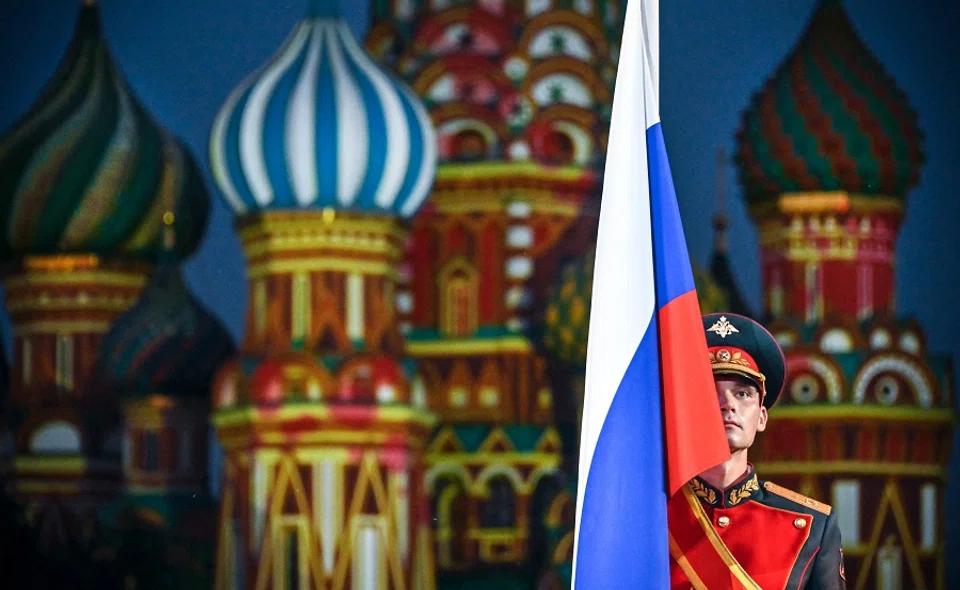
Long before the outbreak of war in Ukraine, the international order was already being transformed by multiple forces. The Trump administration set off two turning points. First, the US's dissatisfaction with the post-World War II liberal international order grew to such an extent that it was willing to dismantle it under the banner of "America First". Second, the break-up between the US and China after four decades of uneasy accommodation. The global pandemic reinforced and sped up the fragmentation and realignment created by the "Trump disruption", reshaping global supply chains and with it, geoeconomics.
The world is regrouping amid uncertainty
The Russia-Ukraine war is further hastening such global geopolitical realignment. It has strengthened or even radicalised several pre-existing trends - the weaponisation of economic interdependence (in the form of the ever-widely used sanctions) and global public goods (epitomised by the cutting off of Russia from SWIFT), the "securitisation" of supply chains, the return of ideology as the foundation of world politics (in the "democracy versus autocracy" discourse) and with it, the forced realignment of states big and small.
Not only that, the paradigm in global supply chains is shifting away from efficiency ("just in time") to greater resilience ("just in case"). Both geoeconomic and geopolitical motives favour the shortening and unbundling of supply chains, driving the separation and isolation of markets. The outcome of this could quite possibly be rival blocs that restrict or block market access for unwanted competitors.
Pressure from both ends of the Eurasia continent is squeezing the strategic space of both China and Russia and driving the two giants together.
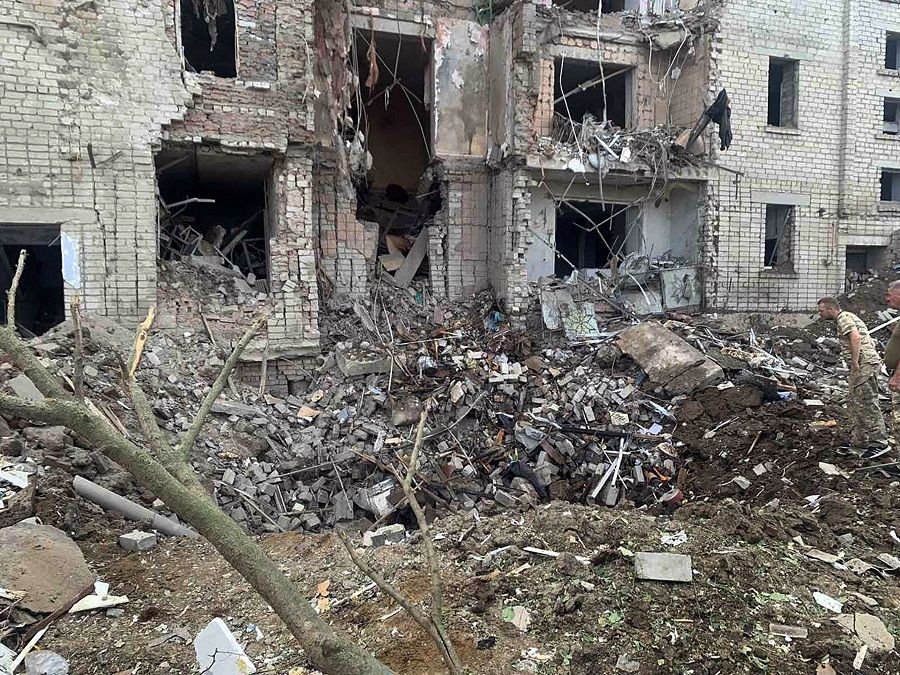
All these developments are eroding the globalisation of the post-Cold War era. Together with the weakening of global governance and increasing big power conflicts, the world is entering an era of uncertainty and reorganisation. The possible emergence of a Sino-Russo alliance will be a major part of this process and bears careful watching.
China-Russia alliance for an alternative world order?
The early euphoria in China that the war in Ukraine would once again divert US attention away from China proved short-lived. Unlike China's relatively aloof relationship with the Middle Eastern states, China-Russia relations are more closely tied, both in history and in contemporary geopolitics and geoeconomics, as well as in their shared opposition to the US in many areas.
The larger context of the entente between China and Russia is America's strategic pivot to Asia and NATO's eastward expansion, especially after Russia's annexation of Crimea in 2014. Chinese Foreign Minister Wang Yi drew a parallel between NATO's eastward expansion and America's alliance-building and hedging activities in the Indo-Pacific, asserting that "the real goal of the US...is to establish an Indo-Pacific version of NATO". Pressure from both ends of the Eurasia continent is squeezing the strategic space of both China and Russia and driving the two giants together.
... and that between China and Russia may be called an "offensive partnership" that has the potential of developing into an alliance - not necessarily in the military sense but rather in its concerted effort to push for an alternative world order.
However, neither a Sino-Russo partnership nor a possible alliance between the two will be a purely defensive one. States balance against a state or alliance of states that poses the greatest threat, instead of against the strongest. They also form alliances in response to perceived opportunities. An alliance is as much a tool to make gains as to avoid losses. In other words, it can be either defensive or offensive, and that between China and Russia may be called an "offensive partnership" that has the potential of developing into an alliance - not necessarily in the military sense but rather in its concerted effort to push for an alternative world order.
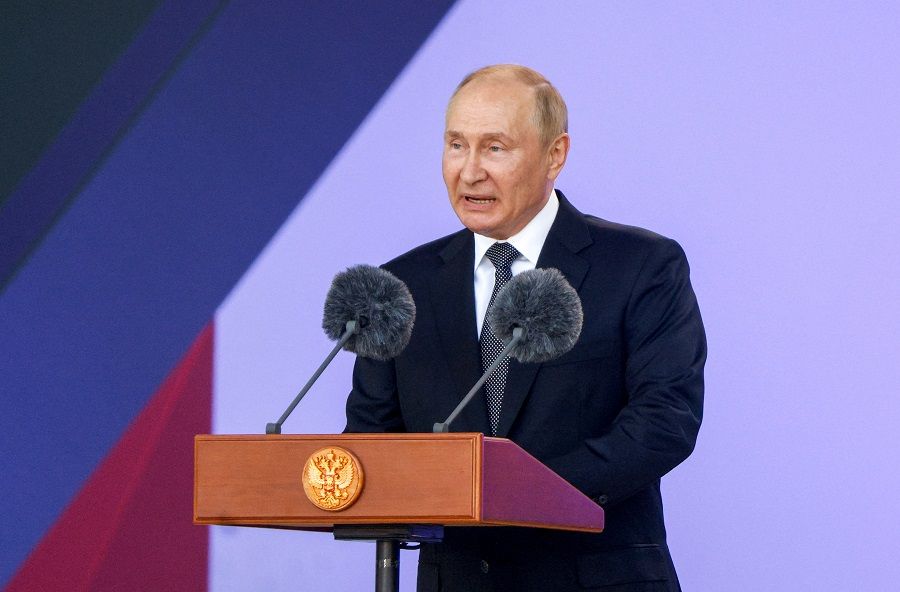
Furthermore, the gains from an alliance are shaped by the extent of shared perceptions of the alternatives to the current order. Both Russia and China are dissatisfied with the prevailing order. In his speech announcing Russia's "special military operation" on 24 February 2022, Putin clearly indicated that one of his objectives was to change the rules of the game in international relations. He and other top Russian officials have repeatedly spoken about ending America's domination in international affairs.
The Chinese have been less unequivocal about ditching the current system because they are more vested in it. In fact, Chinese ambassador to Washington DC Qin Gang went out of his way to assure the West that China is a status quo power. He wrote in an article in The National Interest: "The current international system is not perfect. It needs to make progress with the times, and China is committed to supporting and contributing to this process, not undercutting or wrecking it."
The US begs to differ. General Milley, chairman of the Joint Chiefs of Staff, labelled Russia and China as "revisionist states". Secretary of State Blinken declared in his recent China policy speech that China posed the "most serious long-term threat to world order" and was "the only country with both the intent to reshape the international order and, increasingly, the economic, diplomatic, military and technological power to do it". He said, "Beijing's vision would move us away from the universal values that have sustained so much of the world's progress over the past 75 years."
Only the emerging non-Western big powers such as China, Russia and India are in a position to articulate and attempt to alter the prevailing order in fundamental ways...
China's rapid rise on the world stage and Russia's assertive posture under Putin provided the impetus for the two countries to define and articulate an alternative vision of the world order, either jointly or independently.
Countering the West: fundamental views of Xi and Putin
Only the emerging non-Western big powers such as China, Russia and India are in a position to articulate and attempt to alter the prevailing order in fundamental ways by introducing new constitutional principles, backed fully by state power.
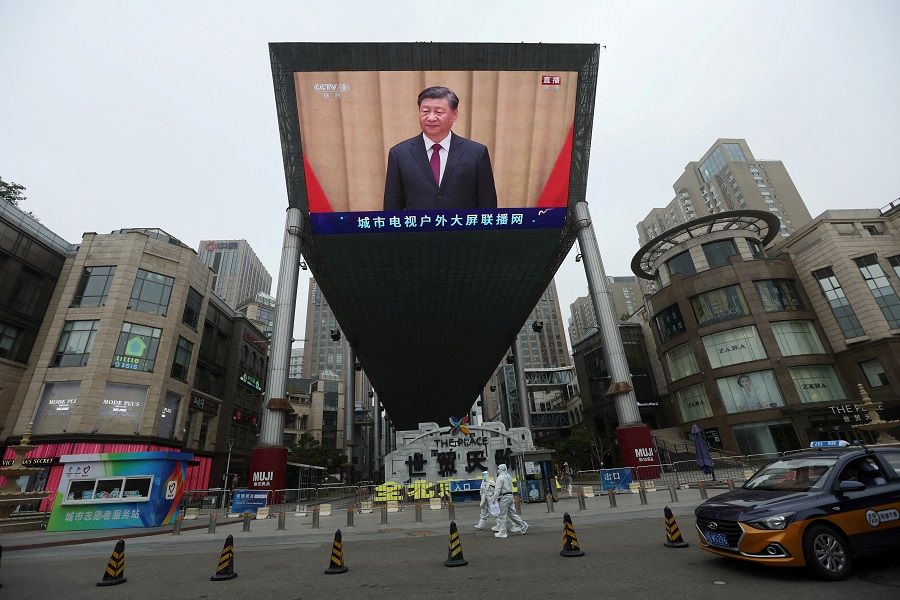
General Secretary Xi Jinping is most conscientious and systematic in this regard. On 24 April 2022, right in the middle of the Russia-Ukraine war, he released his Global Security Initiative (GSI) in his address to the Boao Forum. At the centre of the GSI lies Xi's ideas such as the "new security concept - common, comprehensive, cooperative and sustainable security", "reject the Cold War mentality, oppose unilateralism, and say no to group politics and bloc confrontation", "reject double standards, and oppose the wanton use of unilateral sanctions and long-arm jurisdiction" and so on.
While Russia agrees to all these, what accentuates the common vision between Russia and China is the "principle of indivisible security" first espoused by the Kremlin. The concept requires "staying committed to taking the legitimate security concerns of all countries seriously", "build a balanced, effective and sustainable security architecture" and "oppose the pursuit of one's own security at the cost of others' security". Putin justifies his invasion of Ukraine on these grounds. He believes that the security of NATO members as a result of NATO's eastward expansion is at the expense of Russia's security.
Time and again, Xi and Putin complained that the West has forcibly imposed liberalism and anti-terrorism all over the world, resulting in humanitarian catastrophes by bringing down regimes and causing paralysis of governance in Iraq, Syria, Libya, Afghanistan and other places.
The GSI is unusual for Beijing, which has previously focused its global ventures on issues like development and trade. However, more importantly, and at a more fundamental level, the two states challenge the basic assumptions of the Western dominated liberal international order.
Time and again, Xi and Putin complained that the West has forcibly imposed liberalism and anti-terrorism all over the world, resulting in humanitarian catastrophes by bringing down regimes and causing paralysis of governance in Iraq, Syria, Libya, Afghanistan and other places. According to a recent estimate, 380,000 innocent civilians have perished in the wars and armed conflicts in these countries, and millions are displaced and become refugees. In Putin's words, "... the result is bloody, unhealed wounds, ulcers of international terrorism and extremism."
In their eyes, equally tragic are the consequences of the "colour revolutions" instigated by the West who, according to them, provided funding to NGOs to infiltrate the governments of the countries concerned, manipulated elections and incited violent conflicts.
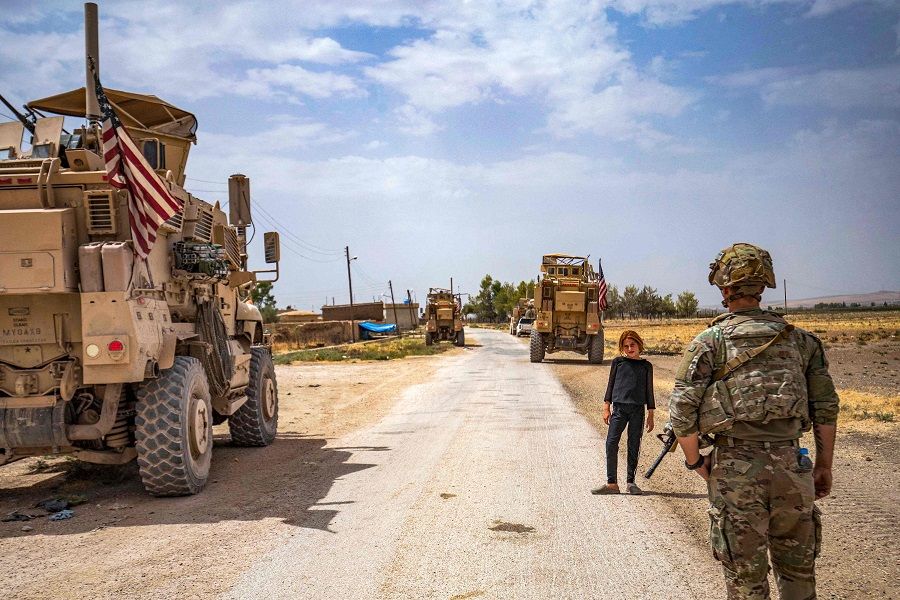
To counter Western charges that they are autocracies, the Putin-Xi joint statement of 4 February argues that "Russia and China as world powers with rich cultural and historical heritage have long-standing traditions of democracy, which rely on thousand-years of experience of development, broad popular support and consideration of the needs and interests of citizens".
Putin accused the West of using "hypocritical liberal values" to destroy other countries' traditional values and corrupt their people from within. He believes that extreme liberal values are against human nature and, together with the political correctness they engender such as same-sex marriage, radical feminism, homosexuality, mass immigration and so on, have caused extensive degeneration in Western societies themselves and are being "globalised" under the cover of democracy and human rights.
Xi targeted the same things when he rectified ideology and social media immediately after taking office. In the 1980s, the Chinese Communist Party (CCP) embarked on the "Anti-Spiritual Pollution Campaign" to curb liberal ideas from the West. Putin has come to view himself as the global champion of Christian nationalism and is increasingly regarded as such by Christian nationalists around the world.
These are fundamental views on global order and human nature that resonate with the domestic political divide in many Western countries. They are likely to impact world politics by adding new dimensions to it as well as providing the foundation of a possible alliance between Russia and China.
Their defence ties probably have evolved to be the deepest.
China and Russia: common ground
People tend to underestimate the breadth and depth of the China-Russian quasi-alliance that has developed steadily over the last three decades, and exaggerate the differences between the two land giants with long joint borders. Their defence ties probably have evolved to be the deepest.
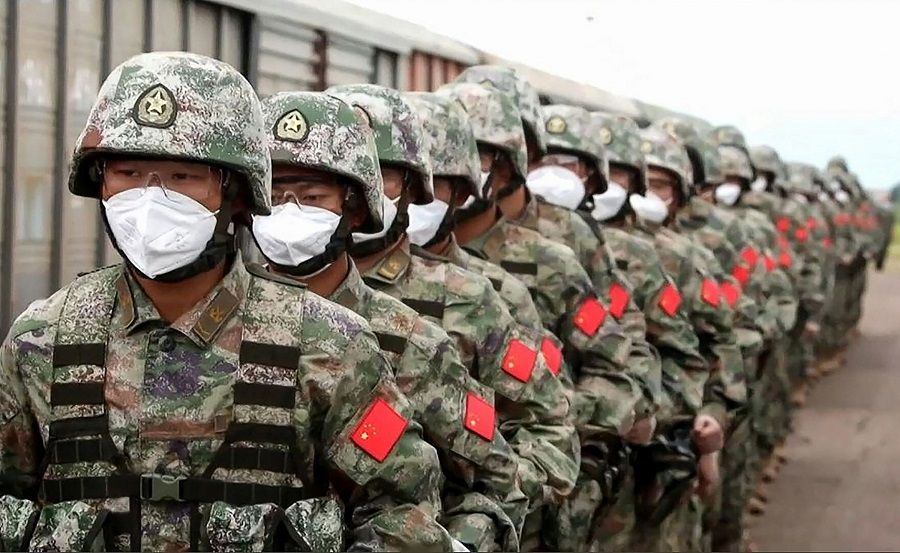
In late 2021, the two organised an unprecedented joint naval exercise through the Tsugaru Strait of Japan, demonstrating a high-level deployment of naval might. At about the same time, Russian and Chinese bomber forces conducted a second joint strategic air patrol over the Sea of Japan and the East China Sea.
Such high-level exercises involving elite forces have become routine as the bilateral security relationship has expanded beyond simpler counterterrorism exercises in the 1990s, to encompass more complex subjects like air-borne assault and anti-submarine warfare. They are also conducting joint projects on sensitive subjects like early warning and cyber warfare.
On 24 May 2022, the two countries held their first joint military exercise since Moscow's invasion of Ukraine, with both countries sending out nuclear-capable bombers above the Sea of Japan, East China Sea and West Pacific in a display of force during US President Joe Biden's visit to the region. Most recently, China also took part in the Russia-hosted Vostok Exercise from 1-7 September with India, Belarus, Mongolia and others.
China and Russia have a similar victim complex, harbour similar resentment towards the West and similarly aspire to regain their past grandeur.
Western companies' withdrawal from Russia after the war broke out rolled the red carpet for Chinese companies and products. Russia is also set to play a bigger role in China's energy and raw material supply. A boost in defence and arms sales is also expected, but this time from China to Russia, reversing a long pattern dated to the 1950s. Many politicians and military personnel in the US, Europe, Australia and Japan now describe Moscow and Beijing as the two anchors of an authoritarian axis stretching across the Eurasian continent.
China and Russia have a similar victim complex, harbour similar resentment towards the West and similarly aspire to regain their past grandeur. Should they join forces in an alliance, they would bring together two of the most formidable ground forces in the world, the second and third nuclear forces, two space powers, two of the largest air forces and two large and rapidly developing navies, one-quarter of the world's population, and the second largest economy and the largest resources-rich landmass in the world.
Overland supply of raw materials and energy from Russia and Central Asia will reduce China's vulnerability of its supply lines through the Indian Ocean, the narrow Strait of Malacca and the troubled South China Sea, all of which have the dominant presence of the US Navy.
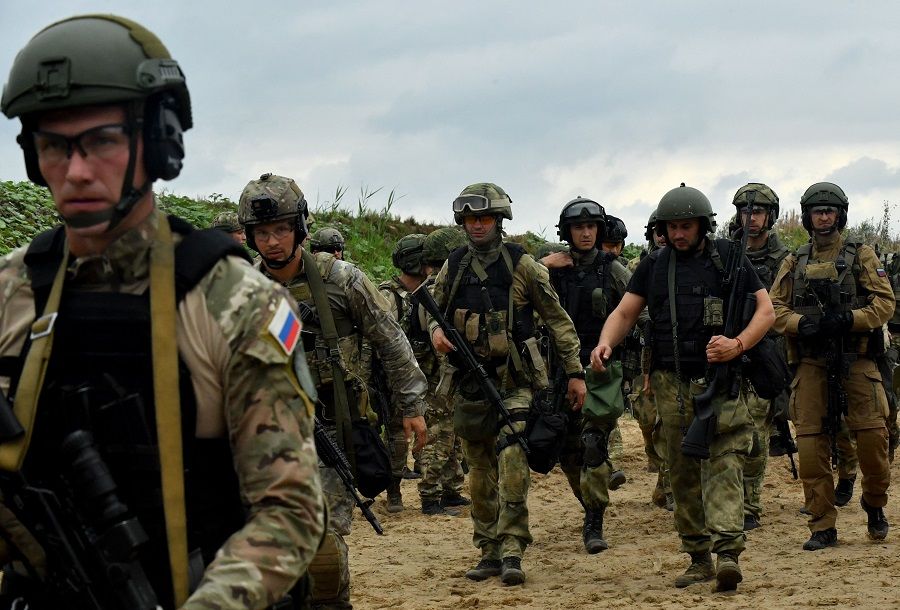
The geoeconomic foundation of the relationship is the complementarities between the two geographically adjacent economies. South of Russia's border is the "factory of the world" with tremendous dynamism and entrepreneurship; to the north is a vast resource base of raw material and energy supply. China has the capital, unmatched infrastructure-building capability and surplus of manufactured goods, all desperately needed by Russia, especially its Far East Region; the region's development depends on how much it can tap into the Asia Pacific dynamism.
Moscow's desire to expand energy exports intersects with Beijing's search for greater energy security. Overland supply of raw materials and energy from Russia and Central Asia will reduce China's vulnerability of its supply lines through the Indian Ocean, the narrow Strait of Malacca and the troubled South China Sea, all of which have the dominant presence of the US Navy.
China and Russia share a common legacy from the communist era. Many older Chinese, Xi's generation, in particular, have developed a "Soviet complex" in which Russia brings up warm memories of the Soviet Union from their youths. Moscow trained many Chinese top leaders, including the patriarch Deng Xiaoping, former Premier Li Peng and CCP General Secretary Jiang Zemin. Soviet films and songs are still popular in China. Russian female figure skating stars in the 2002 Beijing Winter Olympics are darlings of the Chinese public, being constantly followed on TikTok and other social media; the cultural affinity at the level of the common people is rarely observed with Western celebrities.
The West's ongoing effort to isolate or decouple Russia and China no doubt will serve to reduce the external vulnerability of both countries and hence increase their freedom to do so.
If the war in Ukraine and its aftermath lingers on, there will be ample events to hammer Russia and China into either a de facto or de jure alliance. China understands that there is virtually no way to return to the past constructive relationship with the US as long as the latter deems it an existential threat. Joining forces with Russia to remake the international order may be an option. The West's ongoing effort to isolate or decouple Russia and China no doubt will serve to reduce the external vulnerability of both countries and hence increase their freedom to do so.
Two different civilisations
However, the two oversized states belong to two very different civilisations and carry with them very different cultural identities. Russia has always considered itself European and is proud of that cultural lineage. With the rise of China, there has been a renewed cultural pride in the Chinese that may lead to a "clash of civilisations". There is also the issue of ego, especially on the part of Russia: can it overcome resentment to what appears to be a junior partner's role, given its previous status as an imperial power in tsarist Russia and as a big brother of China as the Soviet Union?
Compared to Xi's global ambitions, Russia's goal is more regional due to its limited defence budget and the fact its economy now is smaller than that of Guangdong province.
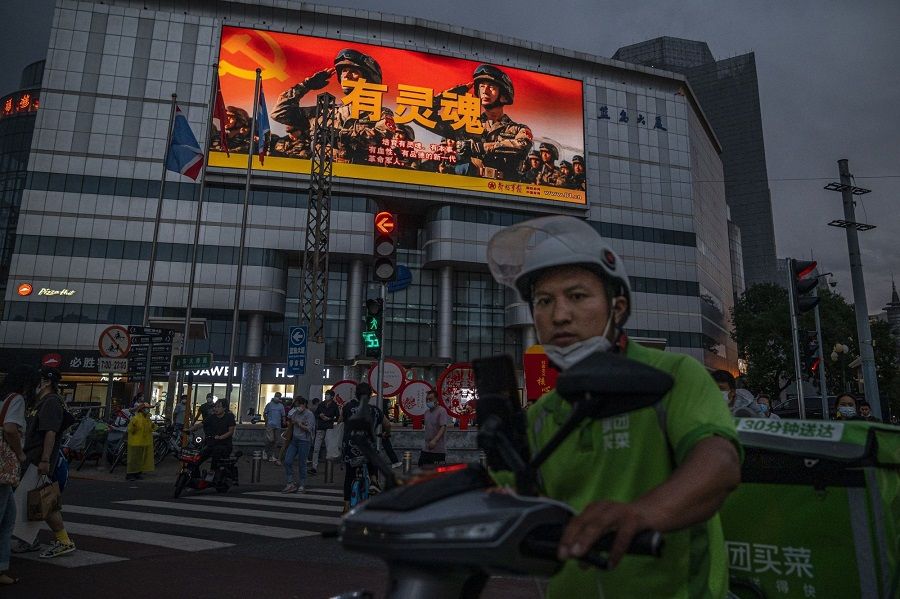
In China's popular account, tsarist Russia annexed 1.7 million square kilometres of Chinese territory and the Soviet Union under Stalin also aided Outer Mongolia in gaining independence from China. A rising China may find reasons to revisit such historical "wrongs" and attempt to redress them, despite the fact that the two states settled their border issues in the 1990s. For now, at least, both reject such speculations as ghost chasing.
Compared to Xi's global ambitions, Russia's goal is more regional due to its limited defence budget and the fact its economy now is smaller than that of Guangdong province. The deterioration of its relationship with the West has in recent decades given rise to the ideology of Eurasianism, which many believe to have informed Putin's decision to invade Ukraine.
Eurasianism posited Russia as a Eurasian polity formed by a deep history of cultural exchanges among people of Turkic, Slavic, Mongol and other Asian origins, and that Russian civilisation belongs neither in the "European" nor "Asian" categories, but instead to the geopolitical concept of Eurasia, therefore making Russia a standalone civilisation.
Some in Russia have even suggested moving the capital from Moscow to New Siberia. One of the chief proponents of this plan is Aleksandr Dugin (whose daughter was recently assassinated in a car bomb explosion apparently targeted at him), a close adviser to President Putin.
Putin seems to have taken the message of Russia as a standalone civilisation to heart. In 2013, he declared Eurasia as a major geopolitical zone where Russia's "genetic code" and its many peoples would be defended against "extreme Western-style liberalism". In July 2021 he announced that "Russians and Ukrainians are one people" and in his national address on the eve of the invasion, he described Ukraine as a "colony with a puppet regime", where the Orthodox Church is under assault and NATO prepares for an attack on Russia.
Such misalignment of objectives may create problems for China and Russia down the line.
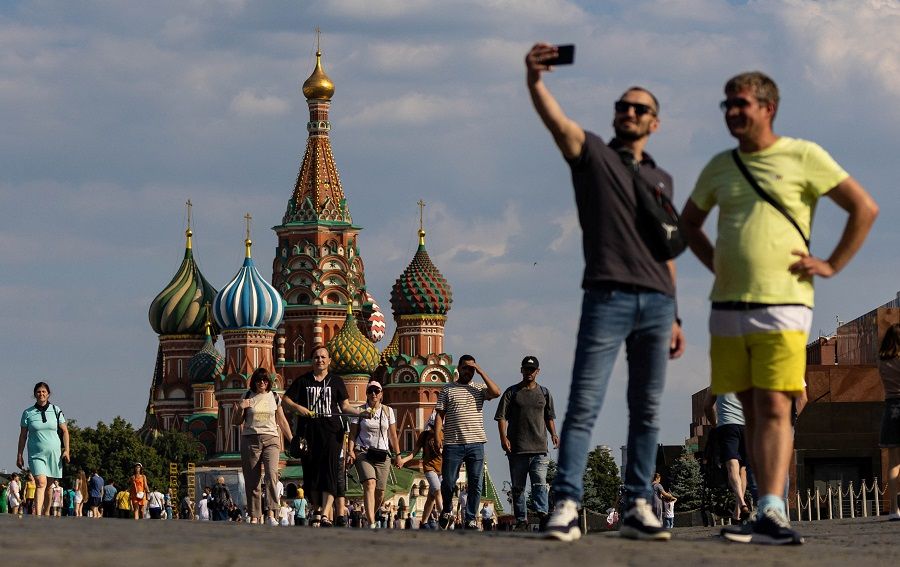
Meanwhile, Russia has also increasingly been pitching itself more as a Pacific nation by emphasising its Asian heritage.
Such misalignment of objectives may create problems for China and Russia down the line. In addition, Xi Jinping has been resurrecting communist orthodoxy while Putin seems to despise the communist episode in Russian history. Nevertheless, the Ukraine war means Russia's relationship with the West, the US in particular, will remain sour for a long time to come, and the aspiration of some in the West of uniting with Russia against China will be postponed indefinitely. Therefore, the common stand against the West may keep these two strange bedfellows in bed for a long time.
... numerous other states, such as India, Pakistan, Saudi Arabia, Brazil, South Africa and some ASEAN states will be welcome to come and go as their issue-by-issue interests dictate.
Changing the world order?
Three tentative conclusions seem in order.
First, there are no insurmountable obstacles to a Sino-Russo alliance and the war in Ukraine has further paved the road. The foundation for a potential Sino-Russo axis appears to be solid. Other disgruntled states such as Iran, North Korea, Cuba, Venezuela, Afghanistan and Syria to name a few may hop on board to form a loose coalition, while numerous other states, such as India, Pakistan, Saudi Arabia, Brazil, South Africa and some ASEAN states will be welcome to come and go as their issue-by-issue interests dictate. The configuration will be much more fluid than the Cold War blocs, but the resulting diversity may well alter the dynamic of world politics.
The combined military prowess and their status as permanent members of the UN Security Council (UNSC) could make China and Russia a formidable force on the world stage. Their economies are almost a perfect fit for trade and investment; their views and stance on a range of important issues in world politics are remarkably similar. They have also been coordinating their activities at the UNSC and elsewhere. Over the years, they have developed a series of joint projects and institutions such as the Shanghai Cooperation Organisation and the BRICS that allow substantive cooperation. In sum, the geopolitical, geoeconomic and institutional foundations for a potential alliance do exist.
For now, however, China and Russia are likely to remain in a strategic partnership, which Xi claimed to be "stronger than alliance", to maximise their options and better serve their distinctive national interests.
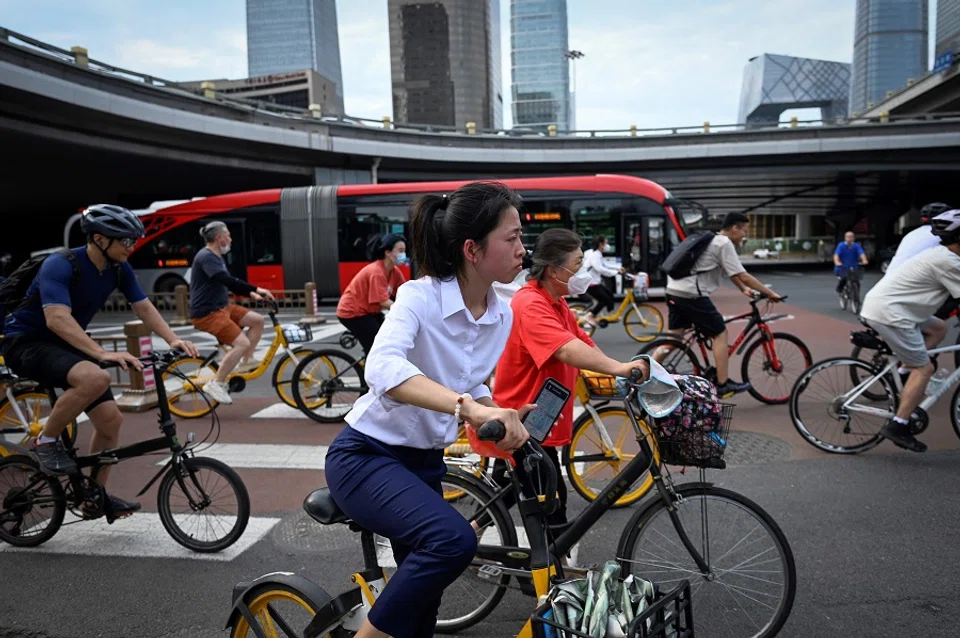
For now, however, China and Russia are likely to remain in a strategic partnership, which Xi claimed to be "stronger than alliance", to maximise their options and better serve their distinctive national interests. Although in the long run both need the West more than they need each other for economic development (an important lesson of the Cold War is that alliance is geopolitically stable but geoeconomically sterile), but that is something out of their control. There is always the possibility that the two may be forced into a formal alliance.
Second, a Sino-Russo alliance, if materialised at all, would be shallow: it lacks the deeper cultural identity underpinning NATO and is unlikely to support sovereignty integration like the EU. Russia and China are sufficiently dissimilar from the West for a possible alliance but they are also too different from each other to form a deep-seated one. In the very long run, it is still conceivable that Russia may swing to the West if the latter stops regarding Russia as an outcast - joining the West has been a dream for Russia since the time of Peter the Great. That however will never be an option for China.
Third, Russia and China's joint promotion of alternative constitutional principles of world order is perhaps more subversive than a formal alliance. It is the embodiment of alternatives in their joint effort and their combined capability that make their collaboration a potent force for change, with or without a formal alliance. China and Russia's non-alliance may perhaps better serve that purpose because each can attract more diverse followers.
In any case, a closer and more robust Sino-Russo partnership is a significant development in world politics. Its potential however also depends on how much Russia is weakened by the war in Ukraine and its economy crippled by Western sanctions, and how united the West is against China.
An initial version of this article was first published as an East Asian Institute background brief.
Related: Will de-dollarisation help China and Russia shape a new world order? | China's alliance with Russia is solidifying | Why do Chinese people sympathise with Russia? | Fifty years after Nixon's visit, is China tilting back towards Russia? | The importance of Russia in China's foreign relations | An ostracised Russia's descent into war and lessons for China | Russia-Ukraine crisis: Can Russian aggression bring back the former glory of the Soviet Union? | Lessons from Ukraine: Russia might fall into decline by going against global sentiment
